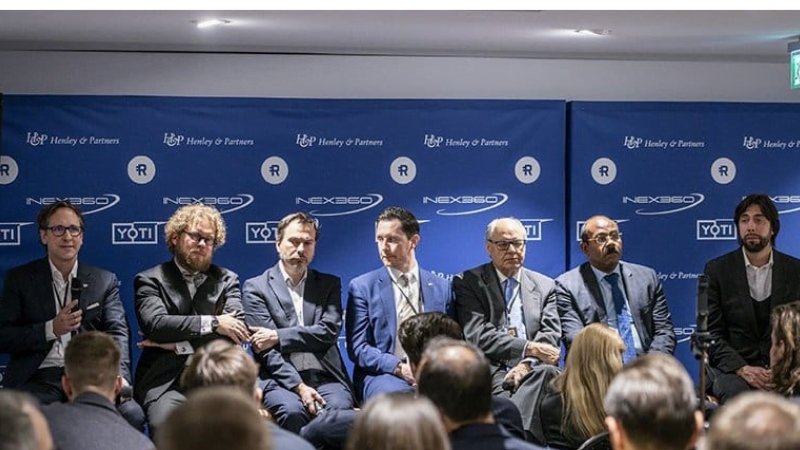In the wake of a report by the European Commission warning of the security risks to Europe from cash-for-passport schemes, Finance Minister Edward Scicluna participated in a debate on the fringes of the World Economic Forum last week in which he spoke of the “investment of global skills and experience in Malta” since the country decided to sell citizenship.
Malta’s passport sales were having “a profound impact” on the economy and resulting in an “investment of global skills and experience” in the country, he told an audience hosted by Henley & Partners to launch the firm’s new concept of “sovereign equality”.
Claiming to offer a solution to “sovereign debt and financial inequality”, Group Chairman Christian Kalin described the firm’s latest concept for selling citizenship as “self-evident and revolutionary”.
“Sovereign states without abundant natural resources or the ability to raise significant revenue from taxation must find an alternative – one that will allow them to compete in global markets and avoid the dangerous levels of debt that are serious threats to their economies and societies.”
He added that “well managed” citizenship by investment programmes drive non-debt liquidity into countries and encourages foreign direct investment as well as facilitating the creation of jobs.
Scicluna joined Henley & Partners to promote the benefits of citizenship programmes as the European Commission released a report last week that warned Member States to tighten security checks on wealthy investors applying for cash for passport schemes such as that run by Malta. It said the schemes have have opened the EU to money laundering, corruption and organised crime.
This was the first time the Commission looked into the schemes, noting shortfalls in due diligence checks, as well as efforts to circumvent EU rules that require “effective” residence in an EU state before granting citizenship.
Malta, Cyprus and Bulgaria are the only EU Member States that run schemes selling citizenship allowing wealthy individuals to buy EU passports, and free movement inside the bloc. Bulgaria announced later it was set to cancel its programme.
Henley & Partner’s launch also led to criticism on social media that the firm was thriving on financial inequality.
Responding to Henley & Partner’s tweet on the launch, lawyer Justin Borg-Barthet said it was an “abuse of markets”.
“No matter how you dress this up, your business model isn’t about equity or equality. It’s about abuse of markets. Selling citizenship to dubious individuals may balance budgets, but – crucially – it enables those individuals to benefit further from massive wealth transfers,” he said.
No matter how you dress this up, your business model isn't about equity or equality. It's about abuse of markets. Selling citizenship to dubious individuals may balance budgets, but – crucially – it enables those individuals to benefit further from massive wealth transfers.
— Justin Borg-Barthet (@JustinBBarthet) January 26, 2019
Malta and its cash-for-passports scheme has been a subject of much controversy and concern, including allegations of kickbacks to the Prime Minister’s chief of staff.
The scheme requires applicants are present in the country for a period of time, requiring the purchase of a property at a minimum value of €350,000, or a rented property at a minimum value of €16,000 per year. Yet an investigation found addresses that were uninhabited, dilapidated, and for all intents and purposes, nothing more than “letterbox addresses”.
Applicants were found not to be living in Malta, much less setting up businesses that could contribute value, or investing global skills and experience.
Henley & Partners responded to the European Commission’s concerns on cash-for-passport schemes in Europe by saying they were “fundamentally misguided,” and accusing them of an “inherent lack of understanding of how the investment migration industry actually operates”.













